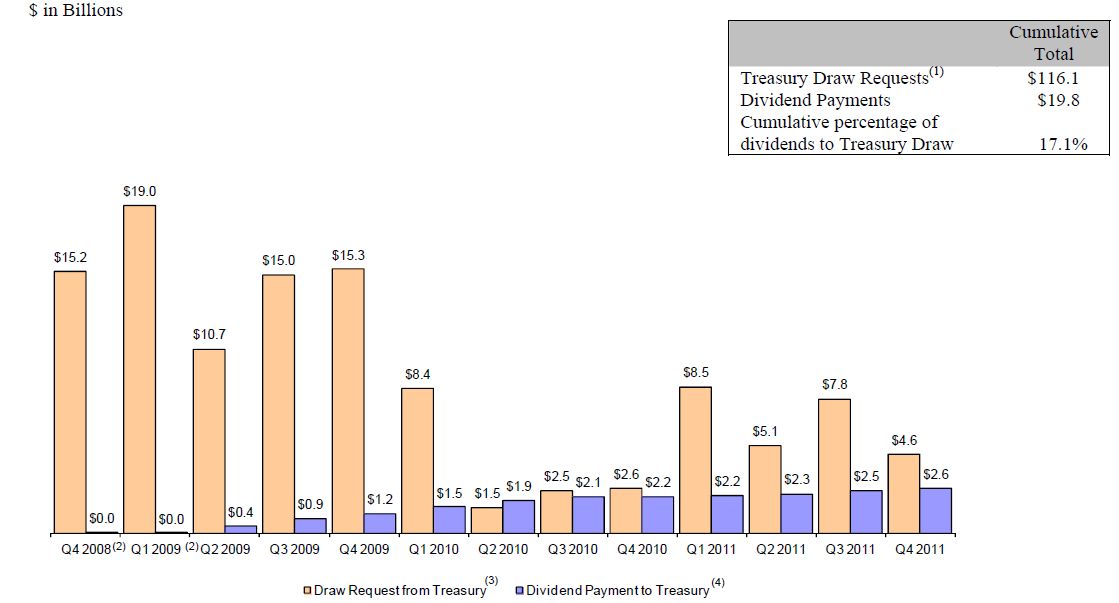(TheNicheReport.com) WASHINGTON, DC – Fannie Mae (FNMA/OTC) today reported a net loss of $2.4 billion in the fourth quarter of 2011, compared with a net loss of $5.1 billion in the third quarter of the year. The company’s net loss in the fourth quarter reflected $5.5 billion in credit-related expenses, the substantial majority of which were related to its legacy (pre-2009) book of business and due largely to a decline in home prices.
These charges were partially offset by a growing percentage of net revenues from the company’s highquality new book of business. For the full year of 2011, Fannie Mae reported a net loss of $16.9 billion, compared with a loss of $14.0 billion for 2010. The increase in the net loss for the year was due primarily to a $6.1 billion increase in net fair value losses in 2011. This resulted from losses in the company’s risk management derivatives in 2011 caused by a significant decline in interest rates during the year. These fair value losses on the company’s derivatives were offset by fair value gains during 2011 related to its mortgage investments; however, only a portion of these investments is recorded at fair value in its financial statements.
“While economic factors such as falling home prices and high unemployment produced strong headwinds for our business again in 2011, we continued to grow a very strong new book of business as we have since 2009. During the year, Fannie Mae funded the market with more than $650 billion in liquidity and maintained its focus on strengthening Fannie Mae’s ability to support and improve the housing industry,” said Michael J. Williams, president and chief executive officer. “For example, since 2009, we have set industry standards for underwriting that promote sustainable homeownership and affordable rental housing. Families across America also have benefited from efforts by Fannie Mae to enable homeowners to refinance 6.6 million mortgages, 1.9 million households to purchase a home, and provided financing for over 1.1 million units of quality rental housing.”
“We continue to build a high-quality new book of business for both single-family and multifamily. Our new single-family book now accounts for more than half of our overall single-family guaranty book of business,” said Susan McFarland, executive vice president and chief financial officer. “Fannie Mae remains focused on reducing losses on the legacy book and we estimate that we have reserved for the substantial majority of the remaining losses on these loans. We are seeing positive outcomes from our actions, such as our investments to build the industry’s most effective credit operation, which completed more than one million workout solutions since 2009 to help homeowners retain their homes or avoid foreclosure.”

The company’s net worth deficit of $4.6 billion as of December 31, 2011, reflects the recognition of its total comprehensive loss of $1.9 billion and its payment to Treasury of $2.6 billion in senior preferred stock dividends during the fourth quarter of 2011. The Acting Director of the Federal Housing Finance Agency (“FHFA”) will submit a request to Treasury on Fannie Mae’s behalf for $4.571 billion to eliminate the company’s net worth deficit. Upon receipt of those funds, the company’s total obligation to Treasury for its senior preferred stock, which will require an annualized dividend payment of $11.7 billion, will be $117.1 billion. The table below shows the amount of Fannie Mae’s requested draws from Treasury and dividend payments to Treasury since entering into conservatorship on September 6, 2008.



